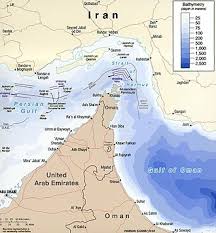2026 FIFA World Cup: A Journey to the Biggest Football Event

Introduction
The 2026 FIFA World Cup is set to become a landmark event in the history of football as it prepares to span three countries: the United States, Canada, and Mexico. This World Cup promises to be the most expansive and inclusive tournament to date, featuring an increased number of teams and matches. As global anticipation builds, understanding the implications and preparations surrounding this event is vital for football fans and stakeholders alike.
Significance of the 2026 World Cup
The 2026 World Cup stands out not only due to its tri-national hosting arrangement but also because it marks the first time that the tournament will expand from 32 to 48 teams. This expansion aims to provide opportunities for more nations to compete, therefore elevating the spirit of global football. As football continues to grow in popularity, the expanded format indicates FIFA’s commitment to inclusivity and diversity in the sport.
Host Cities and Infrastructure
The tournament will be held in 16 cities across the three host nations, including major metropolitan areas like New York City, Los Angeles, Toronto, and Mexico City. Each city is investing heavily in infrastructure to ensure that venues meet international standards. This includes upgrades to existing stadiums as well as the construction of new facilities. The emphasis on accessibility and sustainability also highlights a modern approach to hosting large-scale sporting events.
Economic Impact
The economic implications of the 2026 FIFA World Cup are significant. According to estimates from the local organizing committees, the tournament is expected to generate billions in revenue through tourism, hospitality, and merchandise. The event is anticipated to create thousands of jobs, providing a substantial boost to local economies across all three host countries. Moreover, the increased visibility can enhance the international branding of each host city.
Fan Engagement and Activities
As preparations progress, fan engagement initiatives are already underway, ensuring that supporters feel connected to the event. FIFA has launched various campaigns to generate excitement and involvement ahead of 2026. Events such as fan festivals, educational programs, and community activities are aimed at bringing communities together and promoting the love for football.
Conclusion
The 2026 FIFA World Cup is poised to be a transformative event in the world of sports, blending tradition with modern inclusivity. As nations prepare to welcome fans from around the globe, the repercussions of the tournament will likely resonate well beyond the final whistle. With an expanded format, investment in infrastructure, and strong economic projections, the 2026 World Cup will not only celebrate football but also foster connections among diverse cultures, making it a truly global event.









